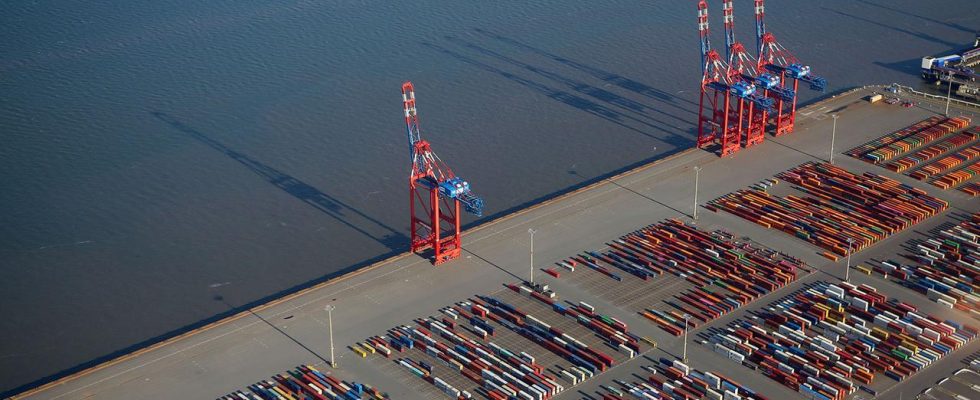The federal government and industry do not expect the German economy to recover quickly. Things also look bleak in the Eurozone as a whole: industrial production fell surprisingly significantly.
The Federal Ministry of Economics does not expect a quick turnaround in the economic trend. “Overall, the current economic indicators do not yet indicate a sustained recovery in the coming months,” said a report published today. “Economic development is therefore likely to remain very weak in the third quarter and will probably only gain momentum around the turn of the year.”
The federal government refers to early indicators such as incoming orders and business climate, but also to the subdued development of the global economy. The Federation of German Industries (BDI) also lowered its economic forecast today.
Ministry expects consumption to recover soon
The German economy has not grown for three quarters in a row because of rising interest rates and high inflation. But above all, the foreign trade prospects look unfavorable: “The global economy has recently lost momentum.” The economic slowdown of China’s most important trading partner has recently left its mark. No trend reversal is therefore expected in the coming months.
However, the ministry also sees bright spots – such as the significant wage increases, to which the increased minimum wage, higher collective bargaining agreements and tax-free inflation compensation bonuses contributed. “This trend is likely to continue over the rest of the year as inflation dynamics ease and lead to a gradual recovery in private consumption,” said Robert Habeck (Greens).
In its spring projection for this year, the federal government assumed an increase in gross domestic product of 0.4 percent. However, this is likely to be revised downwards in the autumn projection.
BDI expects the economy to shrink in 2023
The BDI has already lowered its forecast. The association expects economic output to decline by 0.4 percent for the entire year. In June he was still assuming stagnation.
The reason given was that the growth impulses from foreign trade had become significantly weaker. In addition, private consumption is slowing down growth. “The German economy is stalling after the recession in the winter half of the year.” It’s not just the current mood in companies that is in the basement. “There is still no improvement in sight in the medium term,” said the BDI.
According to the International Monetary Fund (IMF), the German economy is the only major industrial nation that is expected to shrink rather than grow this year. Habeck warned against badmouthing Germany as a location despite the current weakness. But the EU Commission has also recently taken a much more skeptical view of the country’s economy.
Industrial production in the Eurozone falls unexpectedly significantly
Meanwhile, the economic situation in the entire euro area looks anything but rosy. The industry surprisingly reduced its production significantly at the beginning of the second half of the year. In July, production fell by 1.1 compared to the previous month, the statistics office Eurostat announced today.
Experts had only expected a decline of 0.9 percent. Compared to the same month last year, production fell by 2.2 percent. The production of capital and consumer goods fell particularly sharply month-on-month. The increase in energy production could not offset these developments in the Eurozone.
Production contracted the most in Ireland (-6.6 percent) and Lithuania (-4.4 percent). Malta recorded the largest increase (+3.4 percent). In Germany, industrial production fell by 1.6 percent.

